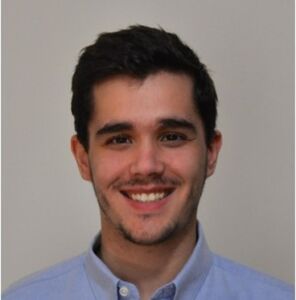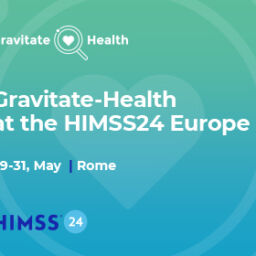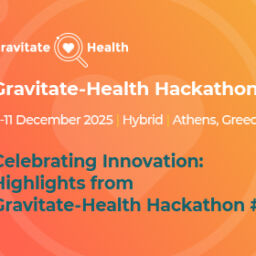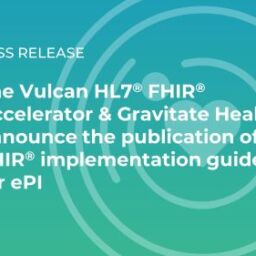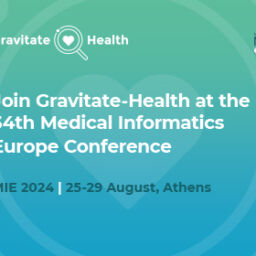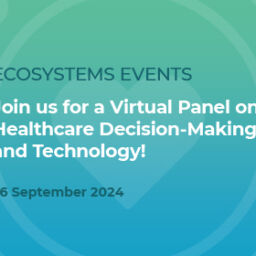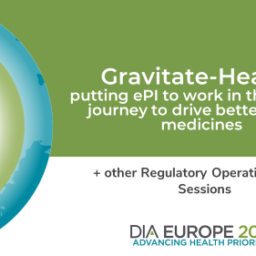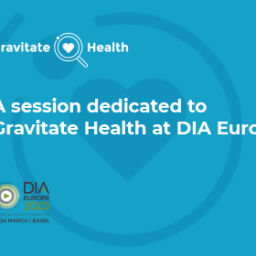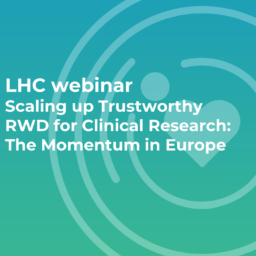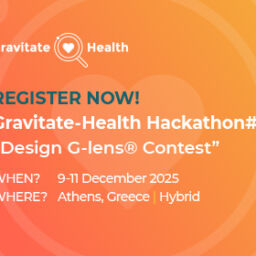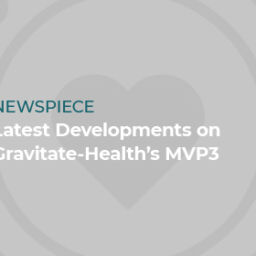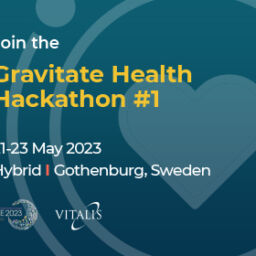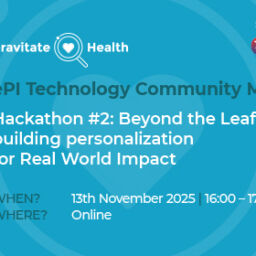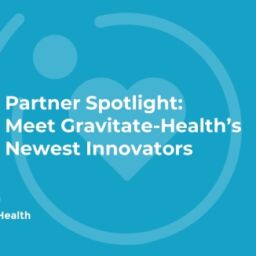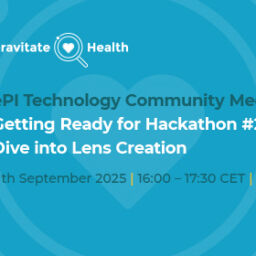Gravitate Health at HIMSS25 Europe: Elevating Interoperability, Inclusion, and Innovation
SHARING Important updates from HIMSS25 Europe
- The European Projects Insight Report has just been published!
- View Prof. Anne Moen’s interview to HIMSS TV
- Interoperability Showcase Use Cases I & II recordings are available
Go to the end of this blog post to view the updates wrapping up a yet another impactful HIMSS event!
Throughout the event, with over 2,100 professionals from more than 60 countries in attendance, HIMSS25 Europe brought global stakeholders together to tackle the biggest questions in healthcare: how policy translates into practice, how digital innovation can enhance care delivery, and how we build inclusive, interoperable systems centred around people.
Throughout the event, Gravitate Health effectively demonstrated how interoperability, co-creation, and inclusive leadership can come together to deliver meaningful digital health solutions. The project showcased how standards-based, multilingual tools can transform access to trusted medicinal information—supporting safer, more informed health decisions. Gravitate Health also illustrated the power of collaborative innovation across sectors, emphasising how co-designed solutions can generate measurable value for both individuals and health systems. By prioritising diversity, equity, and the active involvement of patients, the project remains committed to a vision of digital health that is not only technologically advanced, but also fundamentally people-centred.
As Europe moves toward a unified health data space and broader adoption of AI, Gravitate Health continues to lead by example—uniting industry, academia, patients, and policymakers to shape a future where health information is accessible, understandable, and genuinely empowering.
Interoperability in Action: G-lens® at the HIMSS Interoperability Showcase
At the heart of HIMSS25 Europe was the Interoperability Showcase, a space designed to demonstrate how cross-border, standards-based solutions bring the European Health Data Space (EHDS) to life. Gravitate Health’s G-lens® solution was featured in two real-world use cases: “Use Case I: Acute Care Hospital Workflow” and “Use Case II: Patient-Mediated Exchange of Data (EHDS).”
With a total of six live demonstration sessions across three days, Gravitate Health offered hundreds of attendees a front-row view into how multilingual, structured electronic product information (ePI)—tailored to the patient’s health status and preferences—can enhance safety, understanding, and engagement in care.
Speakers including João Almeida (Product Owner, HL7 Europe), Alejandro Medrano and Alejandro Alonso (UPM) delivered hands-on technical insights during the demos, while Almeida also spoke twice on the Tech Leadership Stage—strengthening the project’s presence in thought leadership forums.
European Projects Workshop: Value Co-Creation in Healthcare
One of the most attended sessions of the entire conference, the European Projects Workshop brought together twelve groundbreaking EU projects. Each project showcased cutting-edge advancements, unique contributions, and valuable assets—such as tools, methods, and data—designed to benefit a wide range of stakeholder groups.
The workshop focused on enhancing socio-economic outcomes through strategic partnerships and real-world application of digital health tools.
Represented by Professor Anne Moen (University of Oslo), the project contributed its perspective on patient-centric digital tools and their role in transforming healthcare delivery. As co-chair, Gözde Briggs (European Patients’ Forum) helped shape a dynamic, interactive dialogue with an Advisory Board featuring policy leaders from the European Commission, OECD, national health ministries, IHE Catalyst, University of Helsinki, the Hospital of Lithuanian University, Health Connected Partners, and HIMSS.
Empowering the Patient Voice and Advancing Inclusive Leadership
AI, Women’s Health, and the Patient Voice
In the main stage keynote “AI Unpacked & Women’s Health Reimagined”, Gravitate Health brought a human-centred perspective to discussions on the EU AI Act, clinical deployment of intelligent systems, and the need to close long-standing gender gaps in diagnosis and care. Gözde Briggs shared real-world examples of how patients are already engaging with AI tools—bridging technology with lived experience. She also moderated a discussion highlighting how patient-reported outcomes and lived experiences are increasingly central to evaluating treatment success and designing more responsive, person-centred health systems.Women in Health IT Breakfast
Earlier that morning, members of Gravitate Health’s female leadership team joined a dynamic breakfast session focused on inclusive leadership, representation in digital health, and strategies to empower diverse voices in innovation. These discussions further reinforced the project’s commitment to equity, collaboration, and participatory design.Important updates from HIMSS25 Europe
The European Projects Insight Report has just been published!
As part of the HIMSS European Projects Initiative 2025, a cross-sectoral Advisory Board including representatives from HIMSS created the European Projects Insight Report to capture the strategic direction, systemic challenges and transformative potential of 12 participating EU-funded digital health initiatives—also featuring Gravitate Health.
Prof. Anne Moen’s interview at HIMSS TV
Anne Moen, Gravitate-Health coordinator, discusses the project’s five-year effort to make prescription drugs’ electronic product information easier for patients and caregivers to understand.
Interoperability Showcase Recordings
Use Case I – Acute Care Hospital Workflow recording
Follow a patient’s journey from remote home monitoring to preparation for surgery and discharge, with her continuity of care supported by secure data flows through systems inside and outside of the hospital.
Use Case II – Data sharing enables cross-border cancer care for European patient
This showcase demonstrates how ‘patient Alex’ receives his cancer care across borders requiring data sharing collaborations across multiple solutions.
What’s next
HIMSS26 Europe will take place in Copenhagen, 19–21 May 2026, where the next European Projects Initiative will take place.



